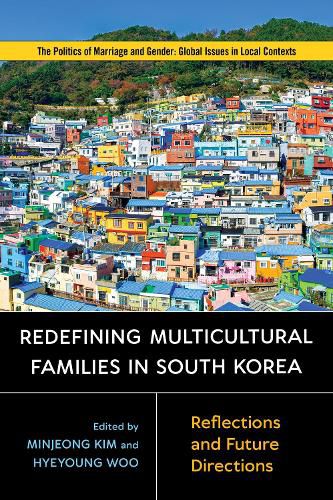Readings Newsletter
Become a Readings Member to make your shopping experience even easier.
Sign in or sign up for free!
You’re not far away from qualifying for FREE standard shipping within Australia
You’ve qualified for FREE standard shipping within Australia
The cart is loading…






Redefining Multicultural Families in South Korea provides an in-depth look at the lives of families in Korea that include immigrants. Ten original chapters in this volume, written by scholars in multiple social science disciplines and covering different methodological approaches, aim to reinvigorate contemporary discussions about these multicultural families. Specially, the volume expands the scope of multicultural families by examining the diverse configurations of families with immigrants who crossed the Korean border during and after the 1990s, such as the families of undocumented migrant workers, divorced marriage immigrants, and the families of Korean women with Muslim immigrant husbands. Second, instead of looking at immigrants as newcomers, the volume takes a discursive turn, viewing them as settlers or first-generation immigrants in Korea whose post-migration lives have evolved and whose membership in Korean society has matured, by examining immigrants’ identities, need for political representation, their fights through the court system, and the aspirations of second-generation immigrants.
$9.00 standard shipping within Australia
FREE standard shipping within Australia for orders over $100.00
Express & International shipping calculated at checkout
Redefining Multicultural Families in South Korea provides an in-depth look at the lives of families in Korea that include immigrants. Ten original chapters in this volume, written by scholars in multiple social science disciplines and covering different methodological approaches, aim to reinvigorate contemporary discussions about these multicultural families. Specially, the volume expands the scope of multicultural families by examining the diverse configurations of families with immigrants who crossed the Korean border during and after the 1990s, such as the families of undocumented migrant workers, divorced marriage immigrants, and the families of Korean women with Muslim immigrant husbands. Second, instead of looking at immigrants as newcomers, the volume takes a discursive turn, viewing them as settlers or first-generation immigrants in Korea whose post-migration lives have evolved and whose membership in Korean society has matured, by examining immigrants’ identities, need for political representation, their fights through the court system, and the aspirations of second-generation immigrants.